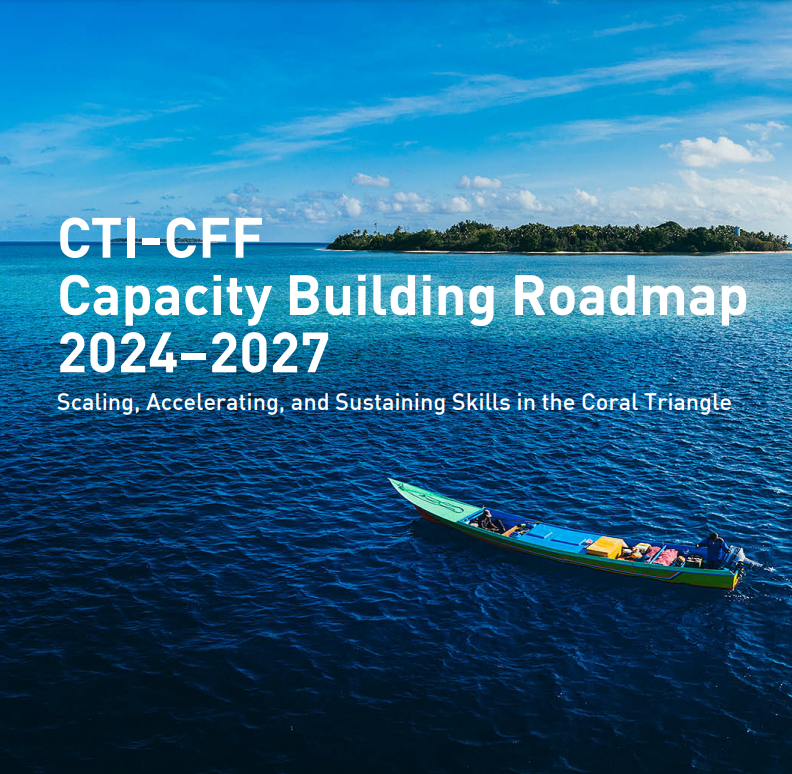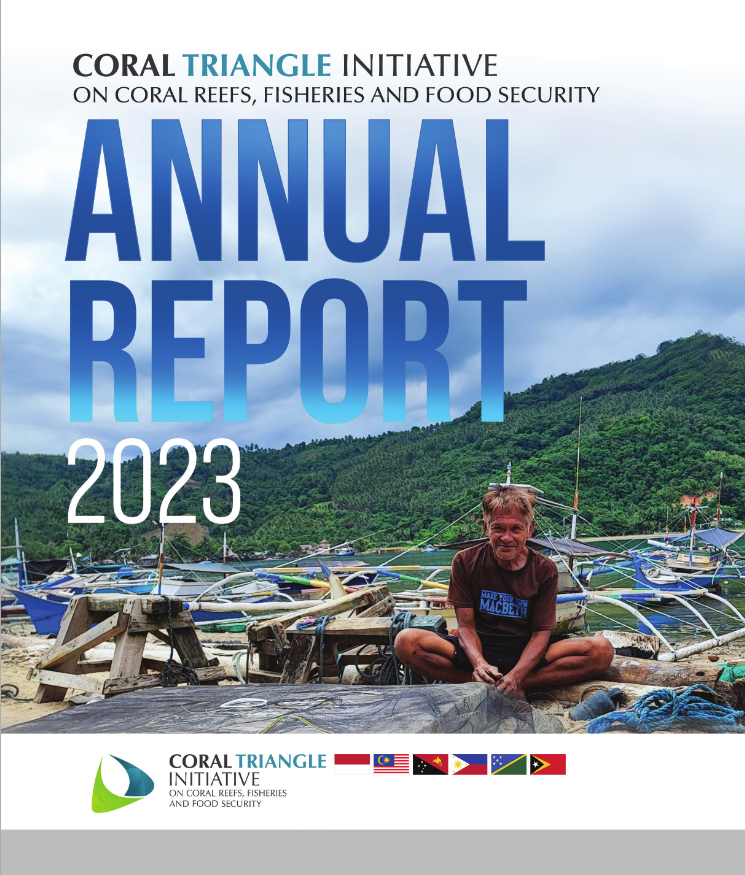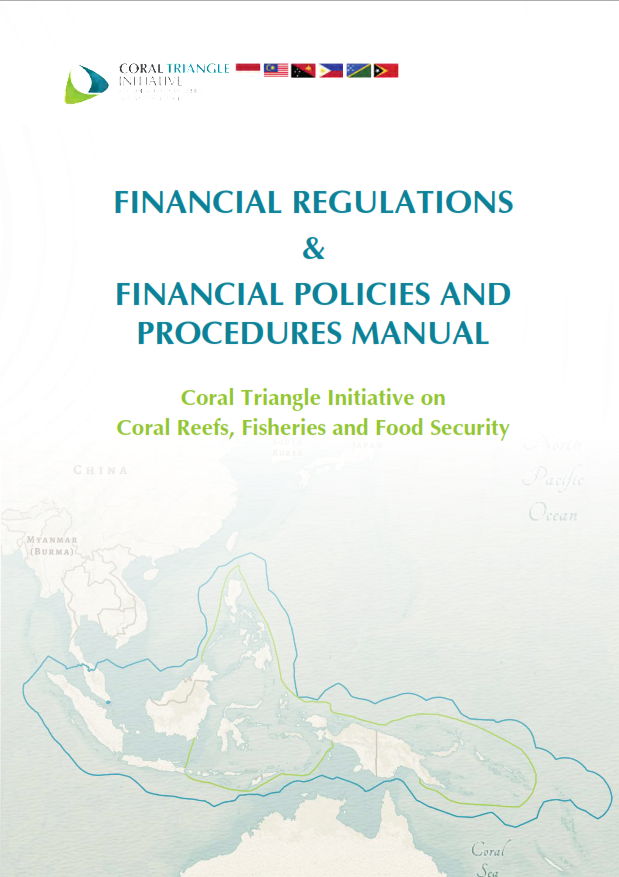New Pathway for CTI-CFF: Renewal of Regional Plan of Action
Manado, Indonesia, 30 April 2019 – Marine and environment conservationists, experts and key government officials from Coral Triangle (CT6) member countries – Indonesia, Malaysia, Papua New Guinea, Philippines, Solomon Islands and Timor-Leste gathered for a three-day consultation workshop to identify and discuss regional priorities for the CT region.
Mr. Alick Misibini, who represented and read the message of Mr. Melchior Maliki, CTI-CFF Chair of Committee of Senior Officials, said that the workshop is another pivotal step towards ensuring that CT6 member countries stay on the course to addressing the region’s ongoing and future needs, especially meeting the aspirations of its people and future generation.
Mr. Misibini called on the participants to focus on climate change challenges, reduction land-based pollution on coastal ecosystems, responsible and sustainable development of marine and coastal natural resources and emphasis on innovative and context specific approaches to rationalize and deepen marine protected areas and seascapes efforts. He also emphasized the need to bring people and communities at the forefront of regional discussions using the lessons and experiences of the various stakeholders within the Coral Triangle Initiative (CTI) platform. Further, strengthening the financial architecture of CTI is deemed a priority in order to invest in the various programs at the regional level as well as supporting nationally-based project.
On the other, Dr. Hendra Yusran Siry, Interim Executive Director of Coral Triangle Initiative on Coral Reefs, Fisheries and Food Security (CTI-CFF) said that “the consultation workshop is intended to ensure that the renewal of the regional plan of action (RPOA) of the CT6 are focused on the countries’ commonalities and consistent with positive impacts on shared concerns. Further, it is expected that the RPOA identify strategies that are feasible and are aligned to global commitments as well as national targets across CT6 member countries.”
Dr. Siry noted the importance of exchanging views and gaining insights from experts not only from the six (6) member countries but as well as from the Development Partners, USAID together with international Non-Government Organizations such as Conservation International, The Nature Conservancy, Wildlife Conservation Society, WorldFish, WWF, and networks like Global Coral Reef Monitoring Network to come up with a more accurate picture of the CT region. In addition, learning from similar regional initiative and international experiences will be drawn to enhance the CTI-CFF regional priorities.
“The presence of these organizations will help in the identification of current and emerging issues so that future actions respond to them. This will also ensure a more cohesive and coordinated efforts towards the further growth and development in the CT region.” Dr. Siry said.
The 10-Year Regional Plan of Action was first endorsed in 2009 and has been the guiding framework of the CTI-CFF. It has resulted to a wide range of accomplishments in the CTI region, among which are
improved ecological indicators in selected sites where most investments have taken place, a strong partnership and network of technical and financing partners, recognition of key leadership of women in sustaining marine resources in the region, tools development for an ecosystem-based fisheries management and importantly, the establishment of the CTI Regional Secretariat.
The three-day consultation workshop is organized by the CTI-CFF Regional Secretariat in partnership with the North Sulawesi Government, USAID Department of Interior and USAID Oceans. It is held in Manado, North Sulawesi, Indonesia. (Janet Rosalie Anne Polita)
---The End---
About CTI-CFF
The Coral Triangle Initiative on Coral Reefs, Fisheries, and Food Security (CTI-CFF) is a multilateral partnership of six countries: Indonesia, Malaysia, Papua New Guinea, the Philippines, Solomon Islands, and Timor-Leste (CT6). The CT6 countries work together to s
The CTI-CFF was established formally during the Leaders’ Summit in 2009 with approval of the leaders f r o m t h e C T 6 countries. They adopted the CTI Regional Plan of Action (CTI RPOA) which is a strategic action plan with five goals: (1) designation of effectively managed seascapes; (2) application of an ecosystem approach to fisheries management; (3) establishment of a fully functional marine protected area system; (4) s t r e n g t h e n i n g climate change adaptation and resilience; and (5) improving the status of threatened marine species.
About Regional Secretariat
The Regional Secretariat (RS) of the CTI-CFF is mandated to promote regional cooperation, knowledge sharing, and learning facilities within the six member countries of the Coral Triangle. The RS coordinates and monitors the progress of the implementation of the Regional Plan of Action (RPOA) goals. The RS coordinates and supports official meetings and events linked to the CTI-CFF process, including cross- cutting services in support of monitoring and evaluation, financial coordination, information management and outreach. It also coordinates the implementation of CTI-CFF RPOA and provides support to, and coordination with, NCCs, including advising the CTI-CSO on emerging opportunities and priorities to reaching the goals and targets of the RPOA. The RS also acts as the channel of communication and information sharing and foster networking among the Parties, CTI Partners and other organizations and donors in the efforts to promote the objectives of the CTI-CFF. The Regional Secretariat is based in Manado, North Sulawesi, Indonesia.
and coastal resources by addressing crucial issues such as food security, climate change, and marine
Media Contact:
Janet Rosalie Anne H. Polita
Communication & Information Manager CTI-CFF Regional Secretariat www.coraltriangleinitiative.org
Email: jpolita@cticff.org or regional.secretariat@cticff.org



